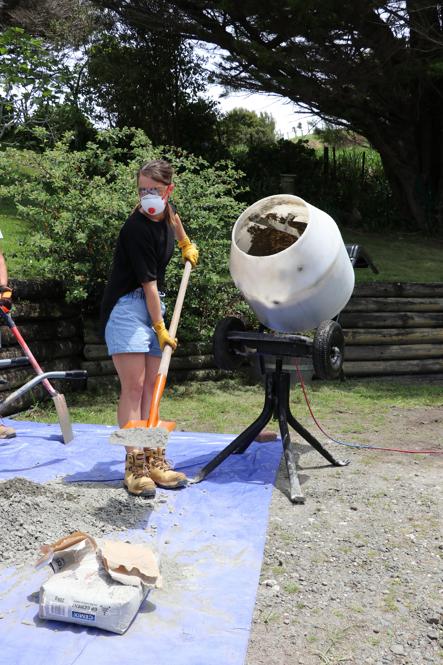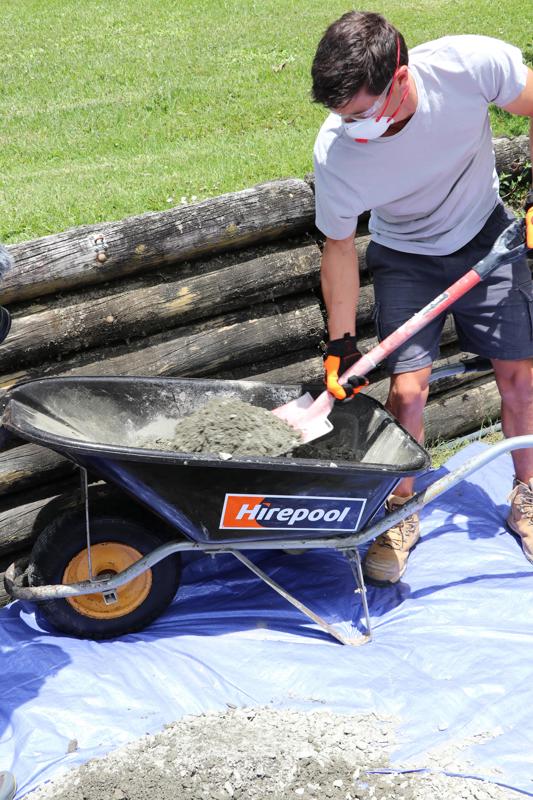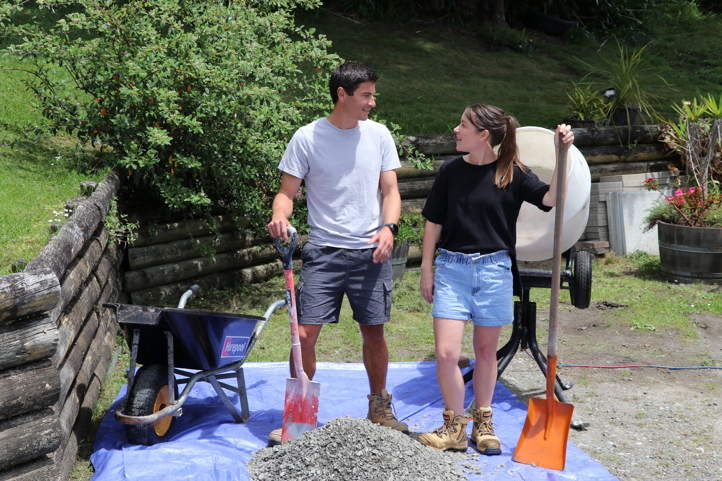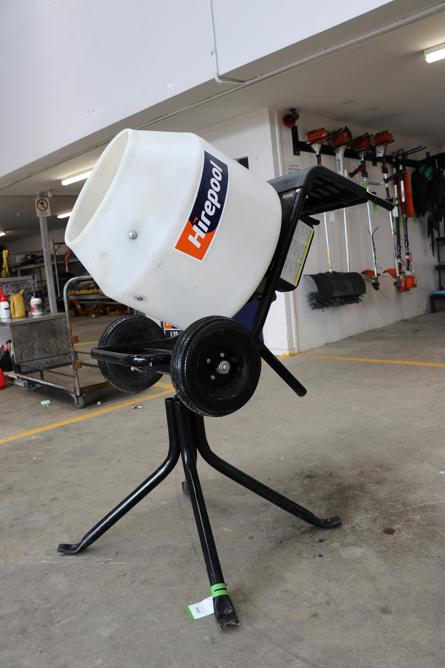Hire cart - {{ cart.TotalQuantity }} item{{ (cart.TotalQuantity != 1 ? 's' : '') }}
Cart is empty. Add gear you want to your hire cart and review them here.
There are no branches matching your search.
Login to view or create favourites and other benefits.
Register to start speeding up your hire process and keep track of your hire history.
Nice to see you again. We've made a few changes since you were last here.
Pick a colour
Favourites ({{ userFavourites.length }})
Add your frequently hired items to easily view and hire them again.
Keep your contact information with us up to date so you get the latest and best rates with us.
Hire cart - {{ cart.TotalQuantity }} item{{ (cart.TotalQuantity != 1 ? 's' : '') }}
Cart is empty. Add gear you want to your hire cart and review them here.
Are you ready to revolutionise your DIY construction projects? Look no further than our comprehensive guide to concrete mixers – the ultimate solution to achieving professional-grade results at home. In this blog, we'll delve into the inner workings of concrete mixers, exploring their various types and functionalities. From understanding how concrete mixers operate to selecting the right one for your specific project needs, we've got you covered. We'll discuss the importance of safety gear and transportation protocols and examine the advantages of using a concrete mixer over traditional methods like the wheelbarrow and shovel, highlighting the time-saving benefits and professional finish they offer. Whether you're a seasoned DIY enthusiast or just starting your construction journey, this guide will equip you with the knowledge and tools needed to elevate your DIY game. We'll cover:
Choosing the Right Concrete Mixer for the job
Fear Factor - Safety Gear & Transport
Smart Way - Concrete Mixer vs Wheelbarrow and Spade
Hire vs Buy - Making the Smart Choice
The Transformative Tool to Elevate Your DIY Game
Mixing concrete is a universal and must-have DIY skill. The humble concrete mixer is your trusted sidekick when streamlining this complex process into a seamless operation. Concrete mixers meticulously combine your cement, builder’s mix and water to create the perfect consistency for every task. However, different types of concrete mixers perform differently. Your project’s scale and requirements will determine your choice of mixer. For example:

Selecting the appropriate concrete mixer is fundamental for achieving optimal results. The decision hinges on factors such as project size, concrete type and frequency of use.
A portable concrete mixer is an excellent choice for creating backyard paths or projects of a similar scale. These mixers are compact, easy to manoeuvre, and ideal for handling smaller quantities of concrete. Whether pouring a pathway, setting fence posts, or constructing a garden feature, a portable mixer offers the perfect balance of convenience and functionality. Look for models with transportation features, like wheels or handles, for quick movement around your project site.
A drum mixer may be the most suitable option if your residential project involves larger tasks like constructing a patio or driveway. Drum mixers are well-equipped to handle substantial quantities of concrete efficiently. Their rotating drums facilitate thorough mixing, ensuring a consistent blend for a professional finish. Consider electric or gas-powered drum mixers for versatility and ease of use. These mixers are generally more powerful and can handle larger batches, making them well-suited for medium to large residential projects.
Volumetric mixers offer a unique advantage for DIYers who need flexibility in adjusting mix ratios on-site. These mixers allow you to produce custom batches of concrete according to your project's specific requirements. If working on projects with varying concrete specifications, such as creating different sections of a decorative pathway or garden borders, a volumetric mixer provides the adaptability needed to achieve optimal results.
Remember, the key is to match the concrete mixer to the specific requirements of your residential project, ensuring a smooth and efficient construction process while achieving professional results.

When working with concrete mixers, safety is paramount. Before engaging with the equipment, it is imperative to prioritise safety gear. Wear gloves, safety glasses, and covered footwear to shield against potential hazards. Beyond personal protection, comprehensive training in operating the mixer is crucial to prevent accidents and ensure efficient use. During transportation, securely fasten the mixer to avoid shifting, safeguarding both the equipment and those in transit.

The age-old method of mixing concrete using a wheelbarrow and spade, while still functional for smaller projects, has evolved with the advent of concrete mixers. The concrete mixer is an efficient alternative. It ensures a consistent mix, eliminates the risk of uneven concrete commonly associated with the wheelbarrow method, delivers a professional finish and elevates the overall quality of your project. Additionally, reduced manual effort translates to a substantial time-saving solution that allows you to focus on other aspects of the project.

An often-asked question is whether to buy or hire a concrete mixer when embarking on a concrete project. While ownership might seem tempting, hiring a concrete mixer is a strategic choice with numerous advantages.
Firstly, the question of storage comes into play. Owning a concrete mixer means finding a suitable space to keep it when not in use. Opting to hire a concrete mixer alleviates this concern.
Flexibility is another compelling reason to choose hiring over buying. Different projects often demand different sizes of mixers, and hiring allows you to select the most appropriate one for your specific task. Hiring ensures access to the right equipment without the burden of ownership, whether it's a compact portable mixer for a small backyard project or a larger drum mixer for a substantial construction site.
Financial considerations also play a role in the decision-making process. For occasional DIYers or smaller projects, purchasing a concrete mixer might entail a significant upfront investment and ongoing maintenance costs. On the other hand, hiring allows you to pay for the equipment only when you need it, saving costs during idle periods.
Maintenance and repairs are additional factors to consider. When you hire a concrete mixer, the responsibility for maintenance and repairs falls on the hire service; this reduces downtime and ensures that the equipment is always in optimal condition, avoiding unexpected project delays.
Generally speaking, opting to buy will see you enter the market at the entry to mid-level point. For about $500, you can purchase a pretty decent domestic mixer. Of course, if you opt to hire, you can choose the best machine for the job and rest easy knowing you’ve got a robust and reliable industrial-grade unit working for you.
Entry Level: $498 |
Hirepool: $81.60 for 4 hours |
|
Motor: 550W, 0.7HP Input Power: 240V ~ 50Hz No Load Speed: 2,800/min Drum Speed: 29.5/min Gross Drum Volume: 120L Mixed Wet Volume: 91L Drum Mouth: ø385mm IP Rating: IP44 Weight: 46.5kg Quality: Domestic |
Maximum drum capacity: 150lit Maximum mixing capacity: 100lit Drum speed: 24rpm Engine type: Electric Noise level: 85dB Length: 1800mm Width: 1300mm Height: 1400mm Weight: 200kg |
No matter how advanced or underdeveloped your DIY skills are, understanding what a concrete mixer offers empowers you to approach all your DIY projects with confidence, efficiency, and a commitment to safety. Embrace the concrete mixer as the smart way to mix concrete and benefit from the transformative impact on your home renovation skills.
For more tips, ideas, and gear to do with masonry, check out our Concrete & Masonry Hub. Hirepool’s simple online booking system makes it easy to check which concrete mixers are available at your nearest branch.
Need to get mixing? You can Hirepool that.
Low Stock Call First
High Demand Product: We suggest making a booking for this item in advance.
Low Stock Call First
High Demand Product: We suggest making a booking for this item in advance.
Low Stock Call First
High Demand Product: We suggest making a booking for this item in advance.
Low Stock Call First
High Demand Product: We suggest making a booking for this item in advance.